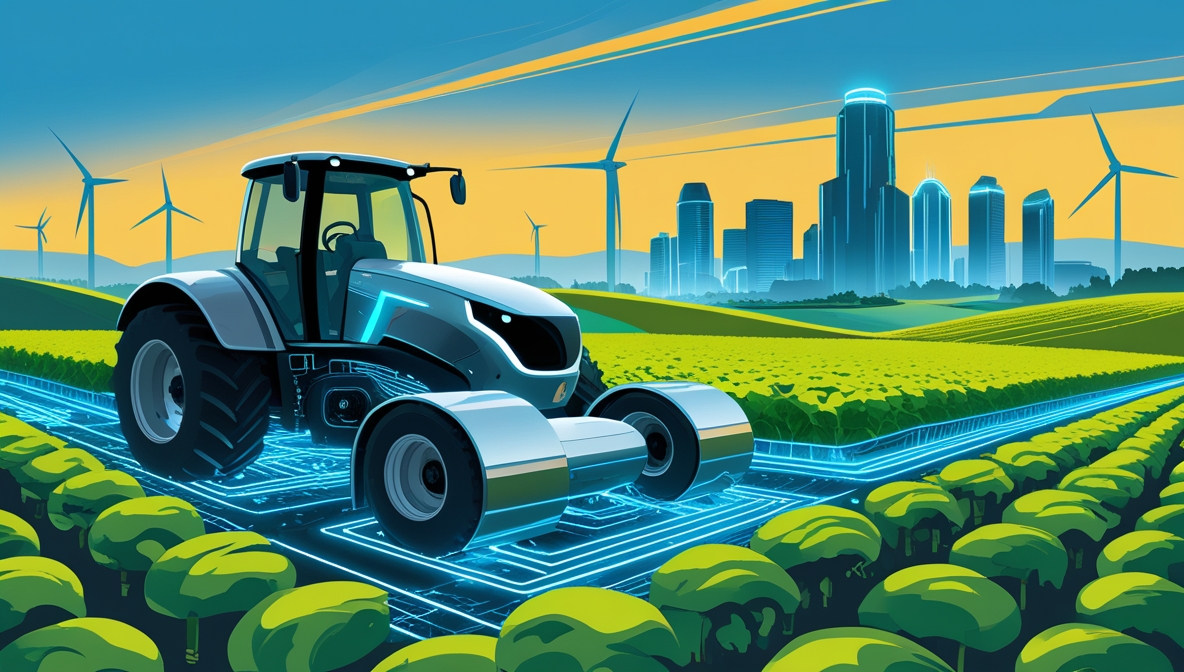Iowa’s Creative Corridor has become a driving force in advancing agricultural technology. With its unique combination of resources, talent, and innovation-focused initiatives, the region is reshaping how agriculture integrates technology to meet modern challenges. The heart of this transformation lies in collaborative efforts that bridge traditional farming practices with cutting-edge advancements.
Collaboration Between Startups and Established Firms
Iowa’s Creative Corridor fosters partnerships between tech startups and well-established agricultural companies. These collaborations accelerate the adoption of technologies such as precision farming tools, advanced crop analytics, and automated equipment.
- Startups like SmartAg are introducing autonomous tractor technology, reducing labor costs while increasing efficiency.
- Established companies such as John Deere have expanded their research efforts, incorporating local innovation to develop smarter equipment.
Such partnerships create a synergistic ecosystem that encourages continuous development.
Focus on Precision Agriculture
Precision agriculture is a key area where the Creative Corridor is leading the charge. Using advanced sensors, GPS-guided systems, and data analytics, farmers can manage crops at a micro-level, optimizing resource use and maximizing yields.
- Soil monitoring systems provide real-time feedback, enabling farmers to apply water and fertilizers more effectively.
- GPS-enabled machinery minimizes waste, ensuring precise planting and harvesting.
These technologies not only improve productivity but also contribute to sustainable farming practices.
Integration of AI and Machine Learning
Artificial Intelligence (AI) and machine learning have found fertile ground in Iowa. Local companies are harnessing these technologies to create smarter farming solutions.
- AI-driven crop monitoring tools can predict disease outbreaks based on weather patterns and historical data.
- Machine learning algorithms are helping farmers analyze past performance to refine planting and harvesting schedules.
The integration of AI not only boosts efficiency but also reduces risks associated with unpredictable factors like climate variability.
Expansion of AgTech Incubators
The region has become a hub for AgTech startups, thanks to dedicated incubators and accelerators. Programs like the Iowa AgriTech Accelerator provide mentorship, funding, and networking opportunities to emerging companies.
- Entrepreneurs gain access to industry veterans who guide them through product development.
- Funding initiatives help startups bring their innovations to market more quickly.
These incubators play a critical role in turning ideas into tangible solutions that benefit the agricultural sector.
Renewable Energy and AgTech Synergies
Iowa’s emphasis on renewable energy, particularly wind power, has created opportunities to integrate sustainable practices with agricultural technology.
- Solar-powered irrigation systems are reducing energy costs for farmers.
- Wind-powered sensors and equipment are making remote farm management more viable.
These innovations align with global efforts to create environmentally responsible farming practices.
Enhancements in Crop Genetics
Advances in biotechnology and genetics are also at the forefront of the region’s transformation. Iowa’s research institutions and biotech companies are working together to improve crop resilience.
- Genetically modified seeds are being developed to withstand extreme weather conditions.
- Research into disease-resistant crops is helping reduce dependency on chemical pesticides.
These developments ensure that agriculture remains viable even under challenging environmental conditions.
Workforce Development Initiatives
The Creative Corridor recognizes the need for a skilled workforce to support its AgTech advancements. Educational institutions and industry players are collaborating to develop specialized training programs.
- Universities like Iowa State are offering courses focused on agricultural engineering and data science.
- Apprenticeship programs are equipping local workers with the skills needed to operate advanced machinery and software.
Investing in talent development ensures that the region remains a leader in agricultural innovation.
Investment in Research and Development
The region benefits from substantial investment in agricultural research and development (R&D). Public and private funding has enabled groundbreaking studies that directly impact farming practices.
- Projects funded by organizations like the Iowa Economic Development Authority focus on improving crop yields and resource efficiency.
- Local companies are allocating a significant portion of their budgets to R&D, leading to the rapid introduction of new products and technologies.
R&D efforts are the backbone of the Creative Corridor’s success in driving AgTech forward.
Enhanced Supply Chain Efficiency
The Creative Corridor is leveraging technology to streamline agricultural supply chains. From farm to market, innovations are improving efficiency at every step.
- Blockchain technology is being used to track produce from fields to stores, ensuring transparency and reducing waste.
- Automated sorting and packaging systems speed up processing times.
These improvements result in better product quality and lower costs for both producers and consumers.
Community and Government Support
Strong community and governmental backing have been instrumental in fostering innovation within the Creative Corridor. Local policies and incentives encourage experimentation and growth.
- Tax breaks and grants are available for companies investing in agricultural technology.
- Community-led initiatives promote sustainable practices and knowledge sharing among farmers.
Such support creates a robust foundation for long-term success in AgTech.
Conclusion
Iowa’s Creative Corridor is transforming agriculture through a blend of innovation, collaboration, and forward-thinking strategies. By integrating advanced technologies with traditional farming practices, the region is setting a benchmark for modern agriculture. Farmers, businesses, and the environment all stand to benefit from the ongoing advancements pioneered in this dynamic area.
